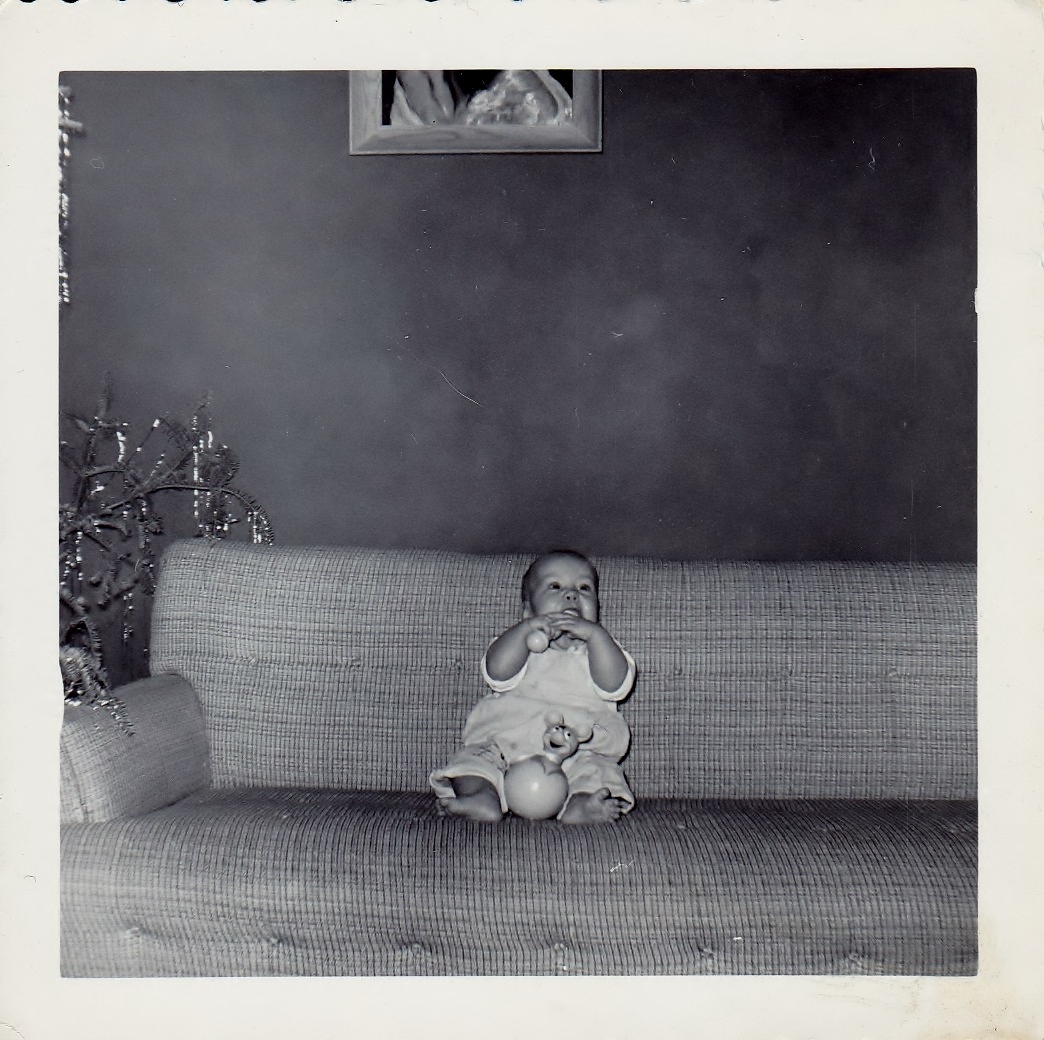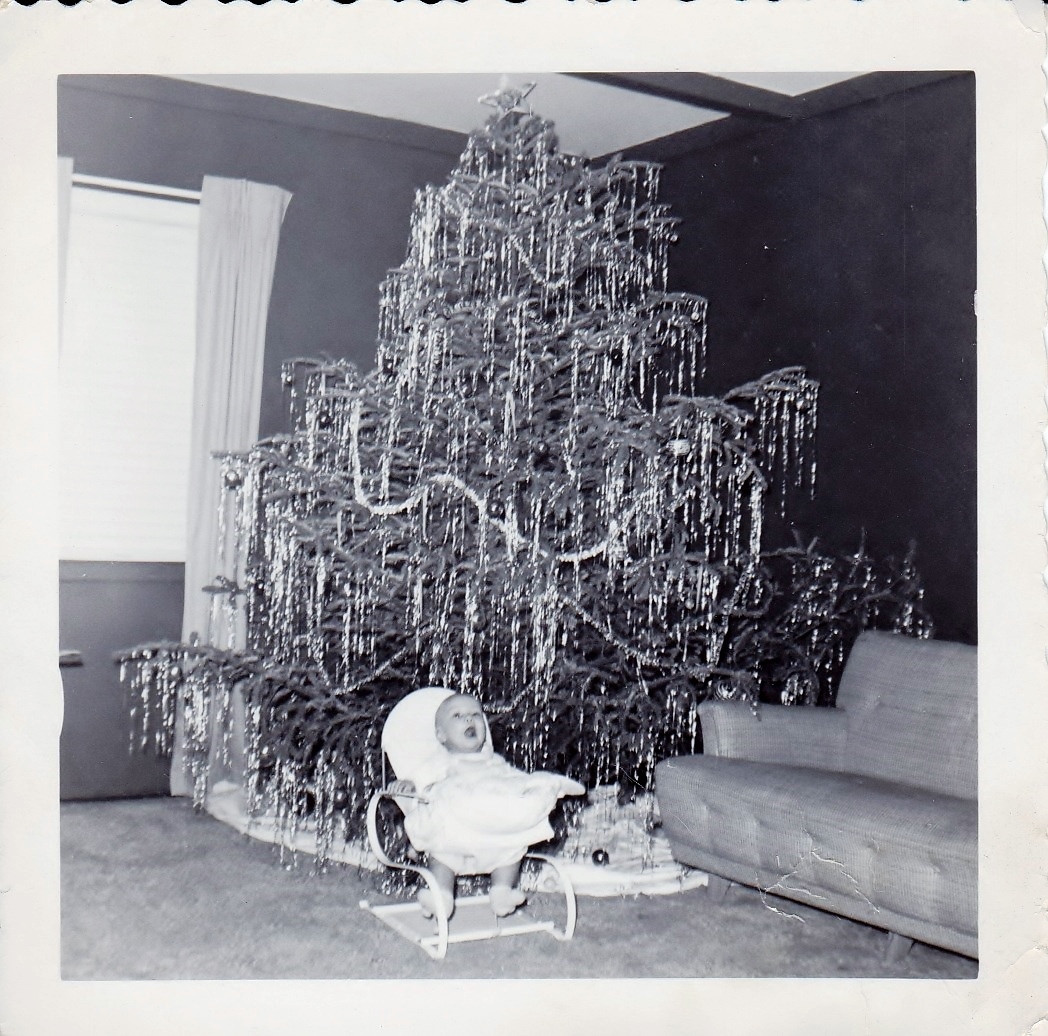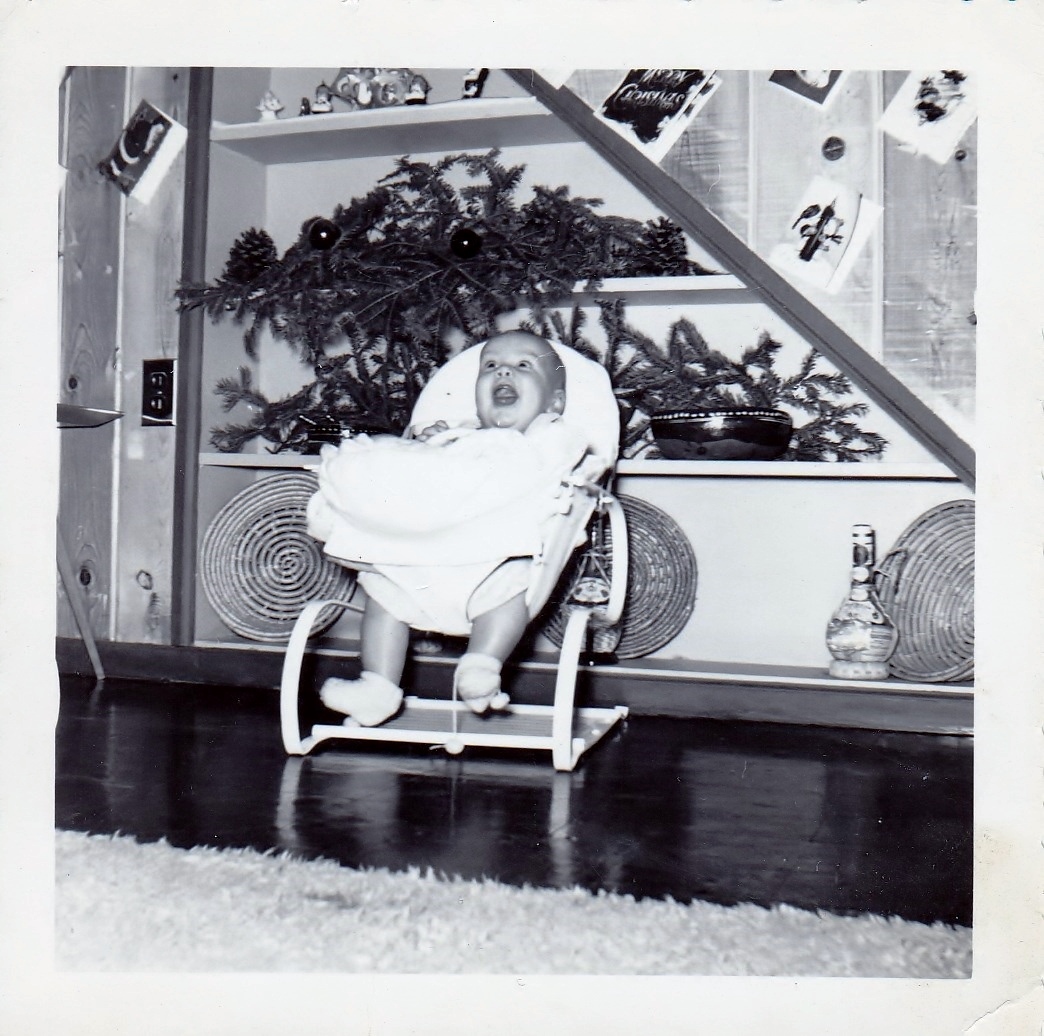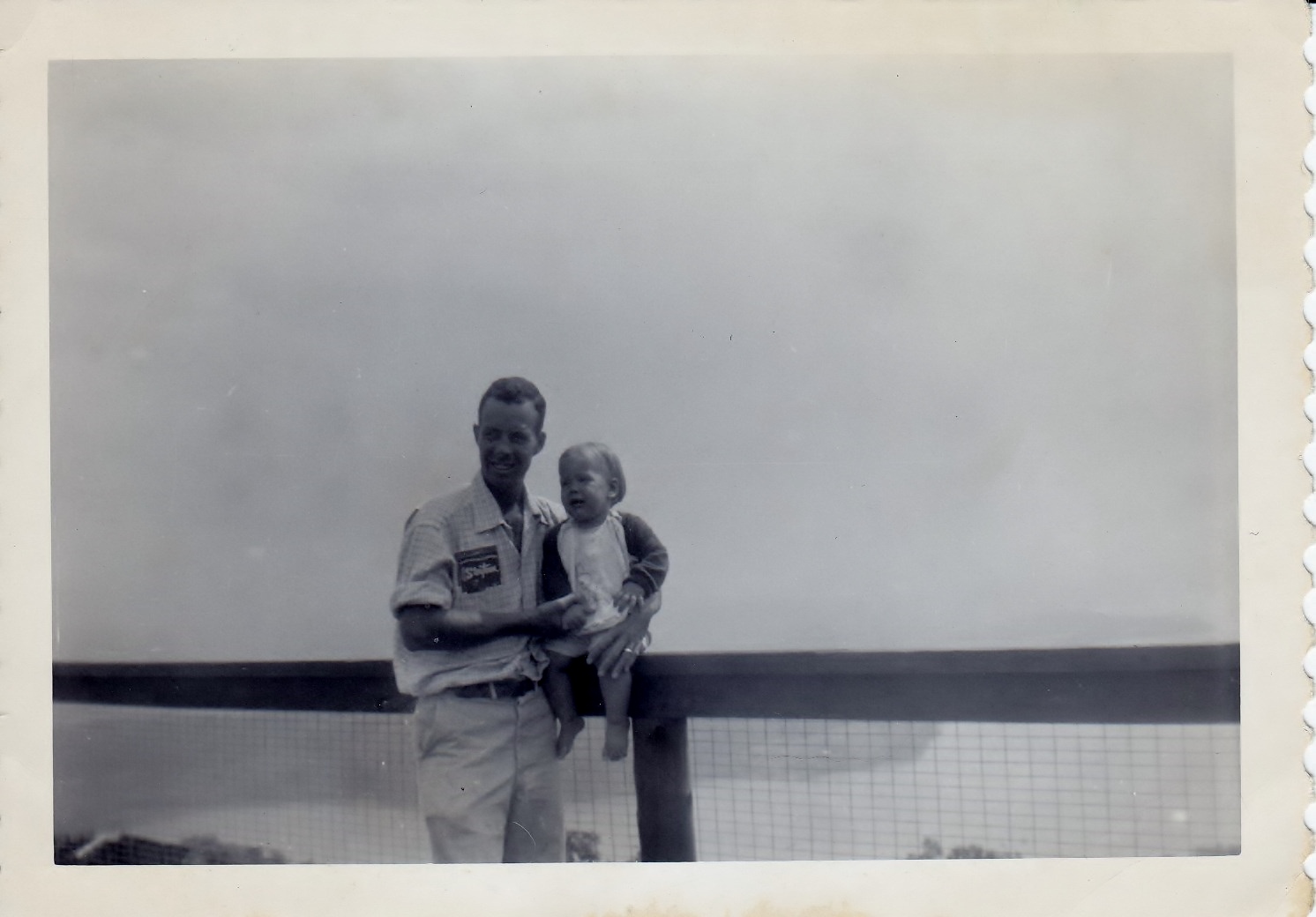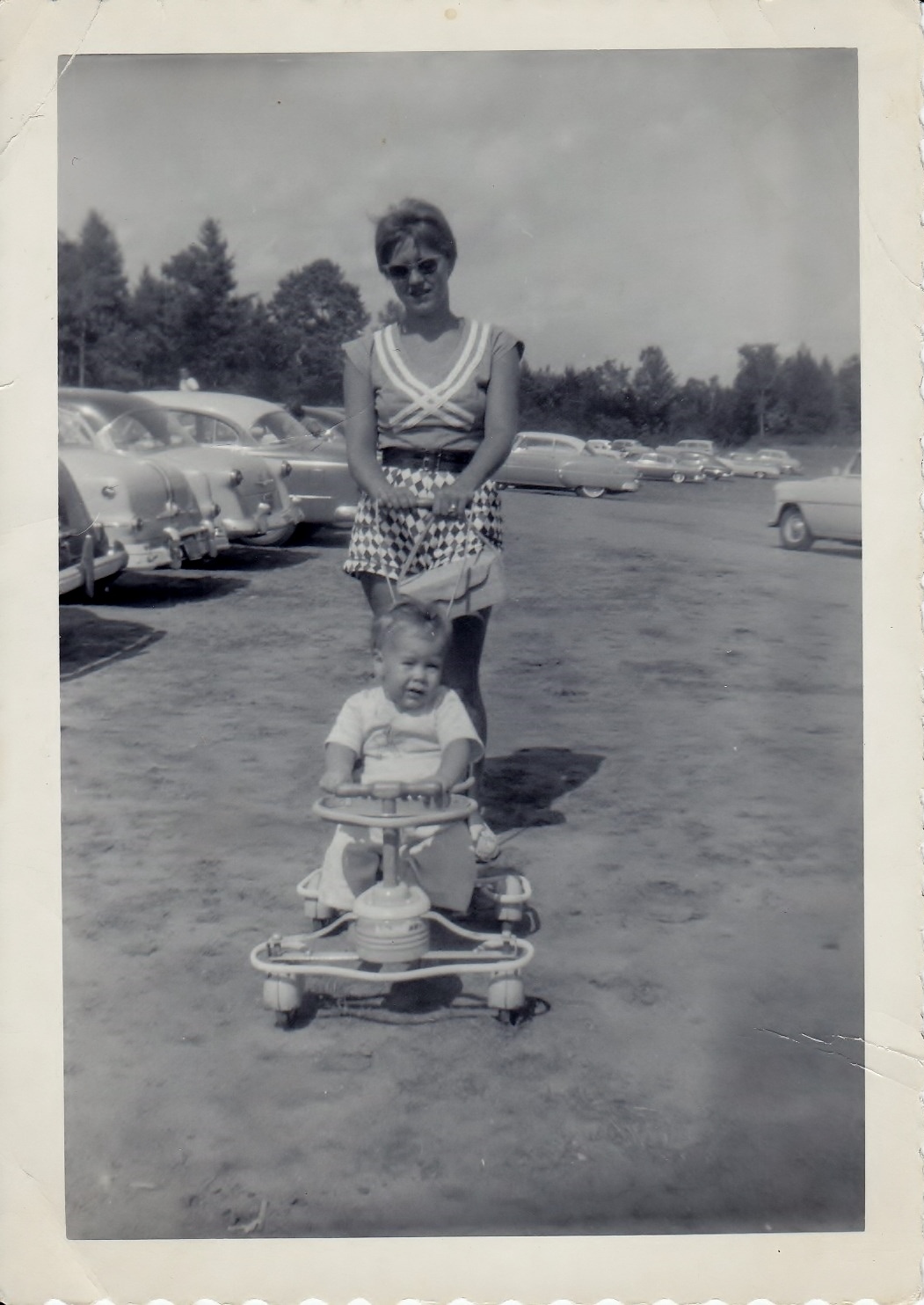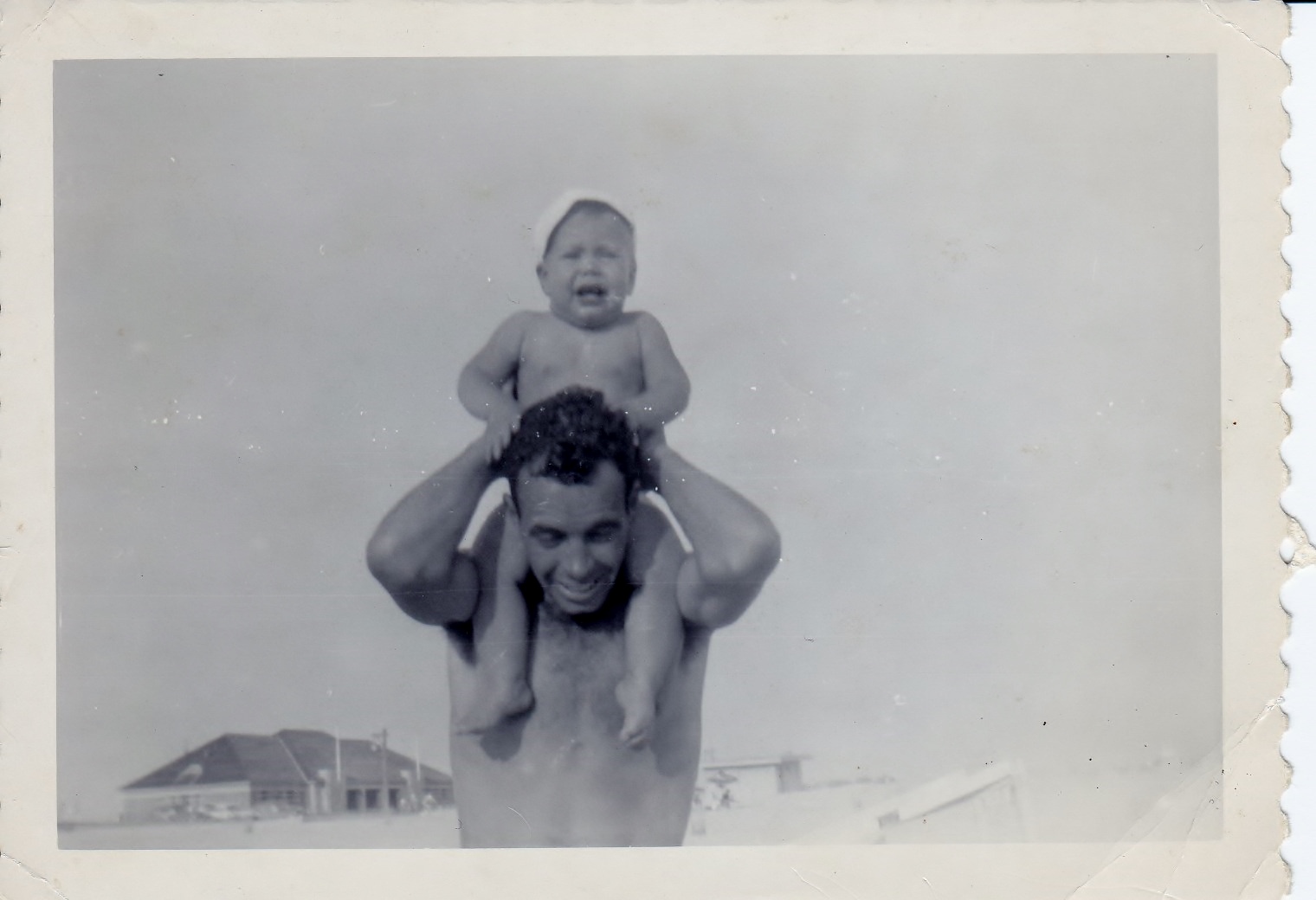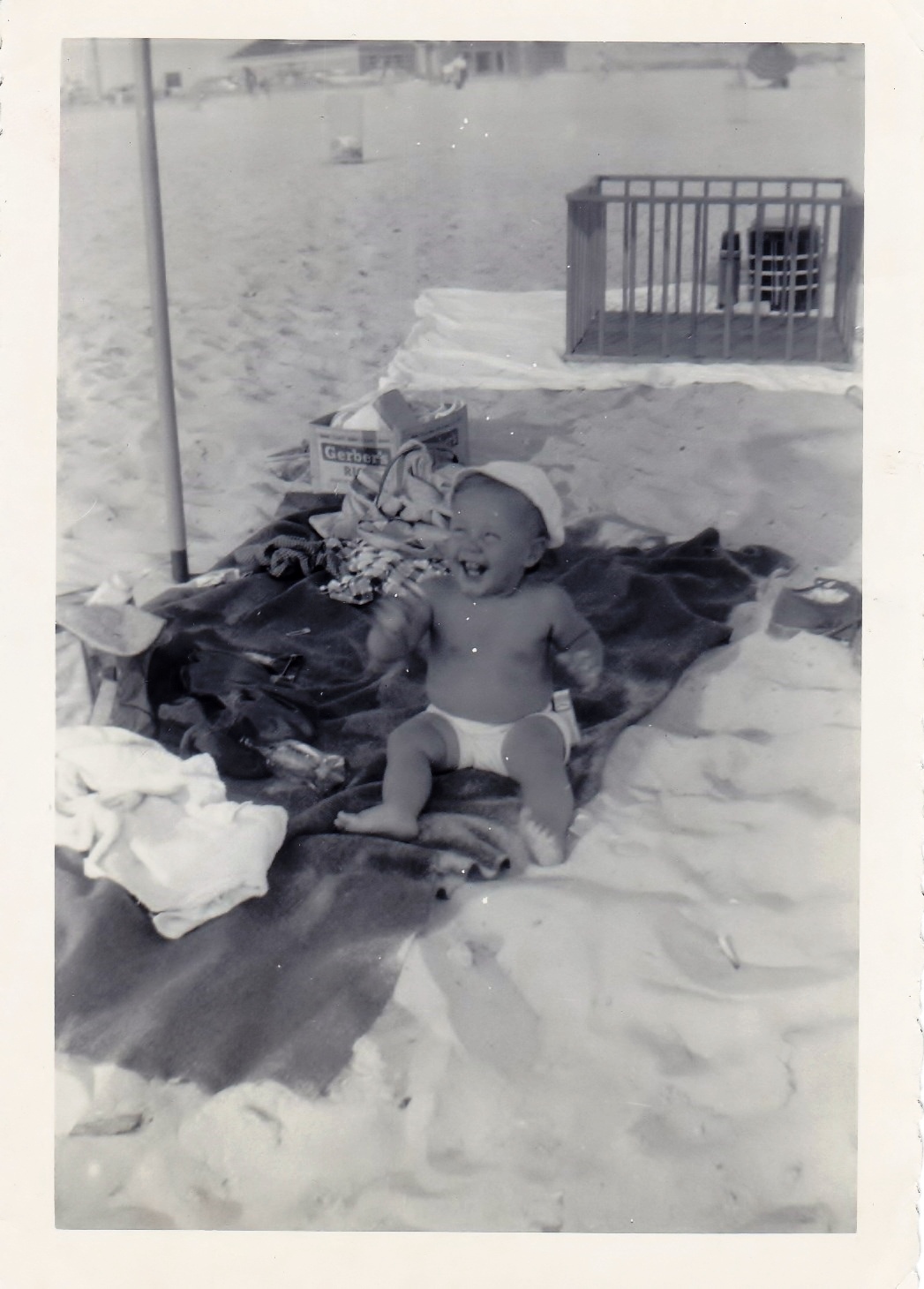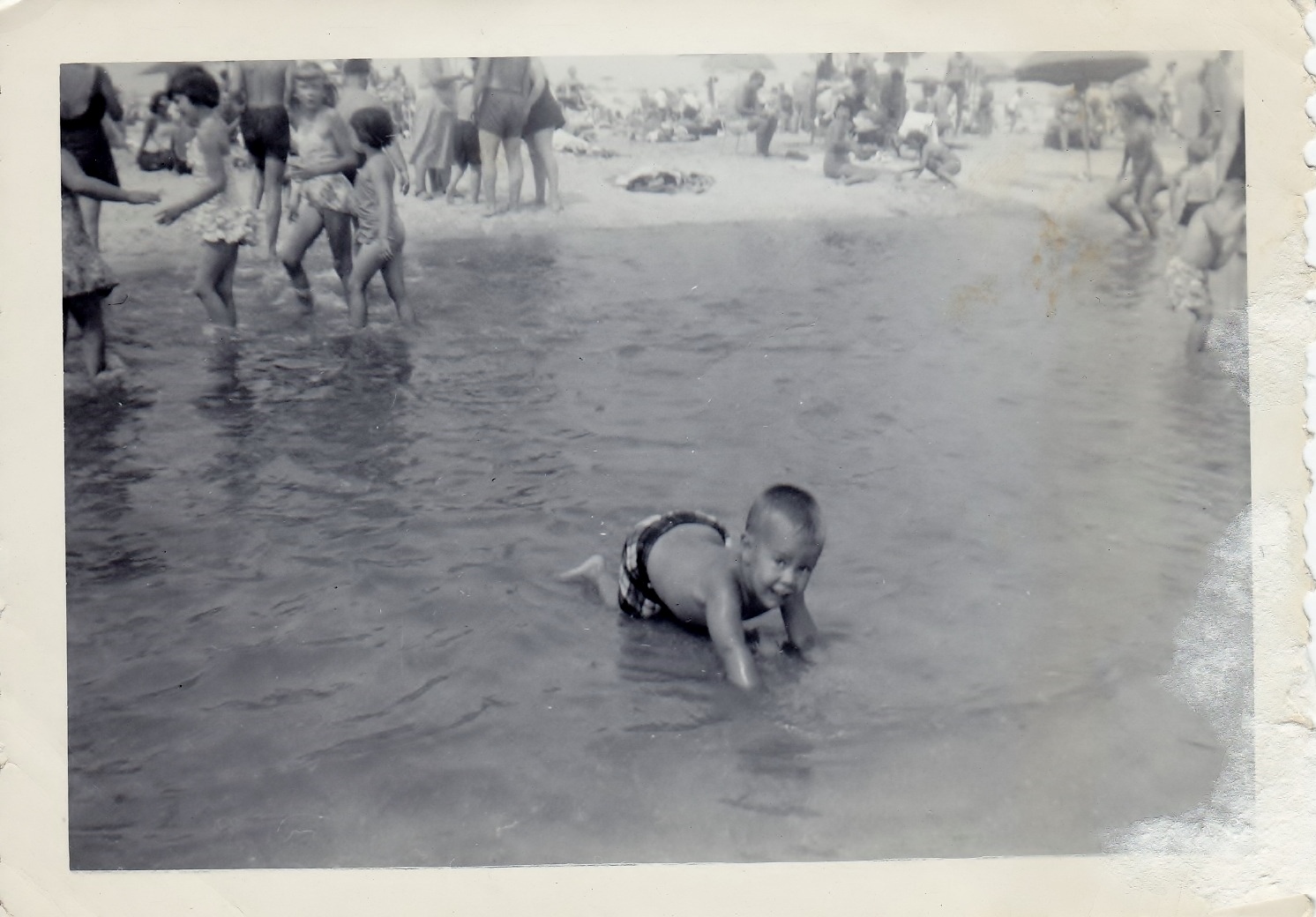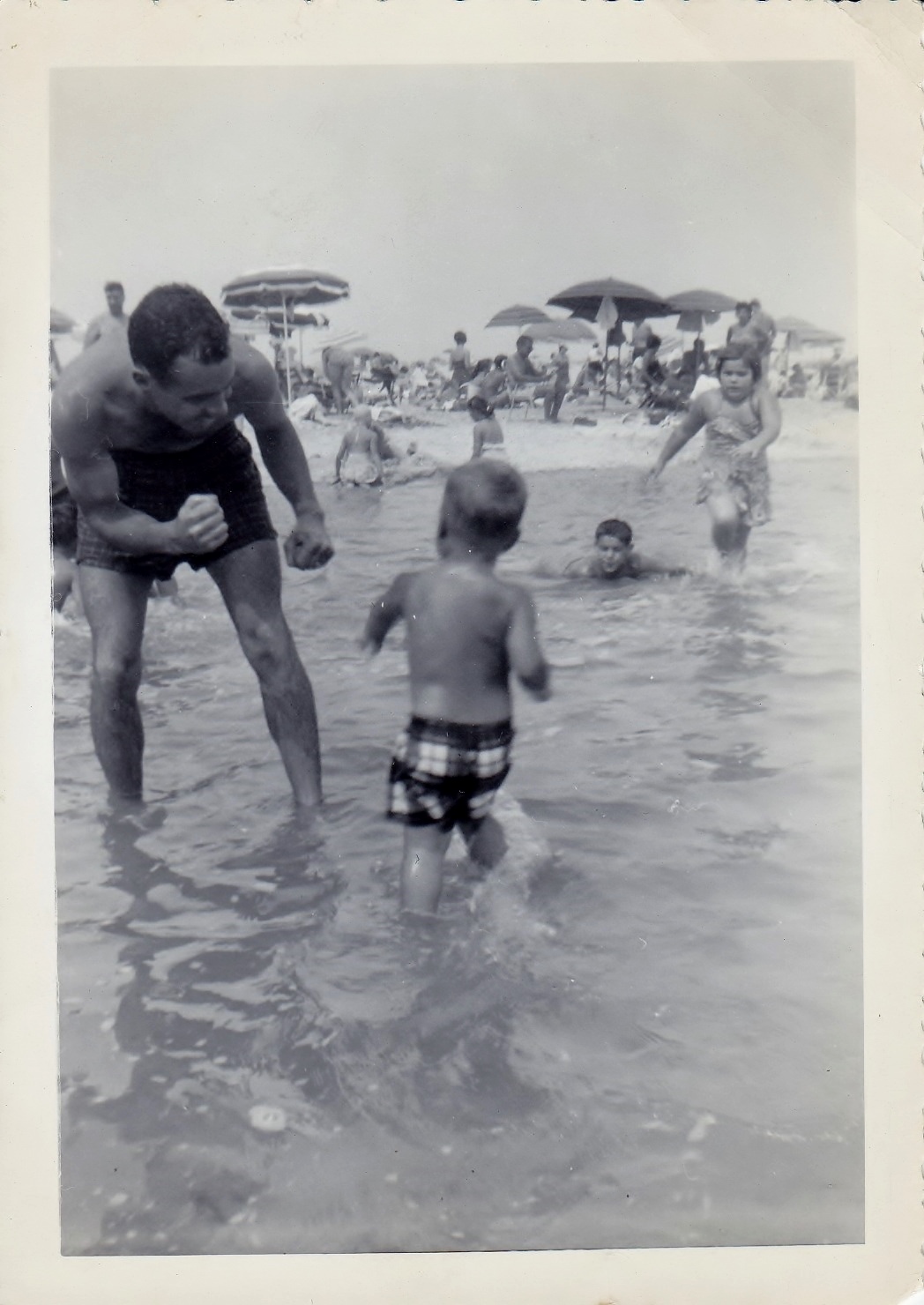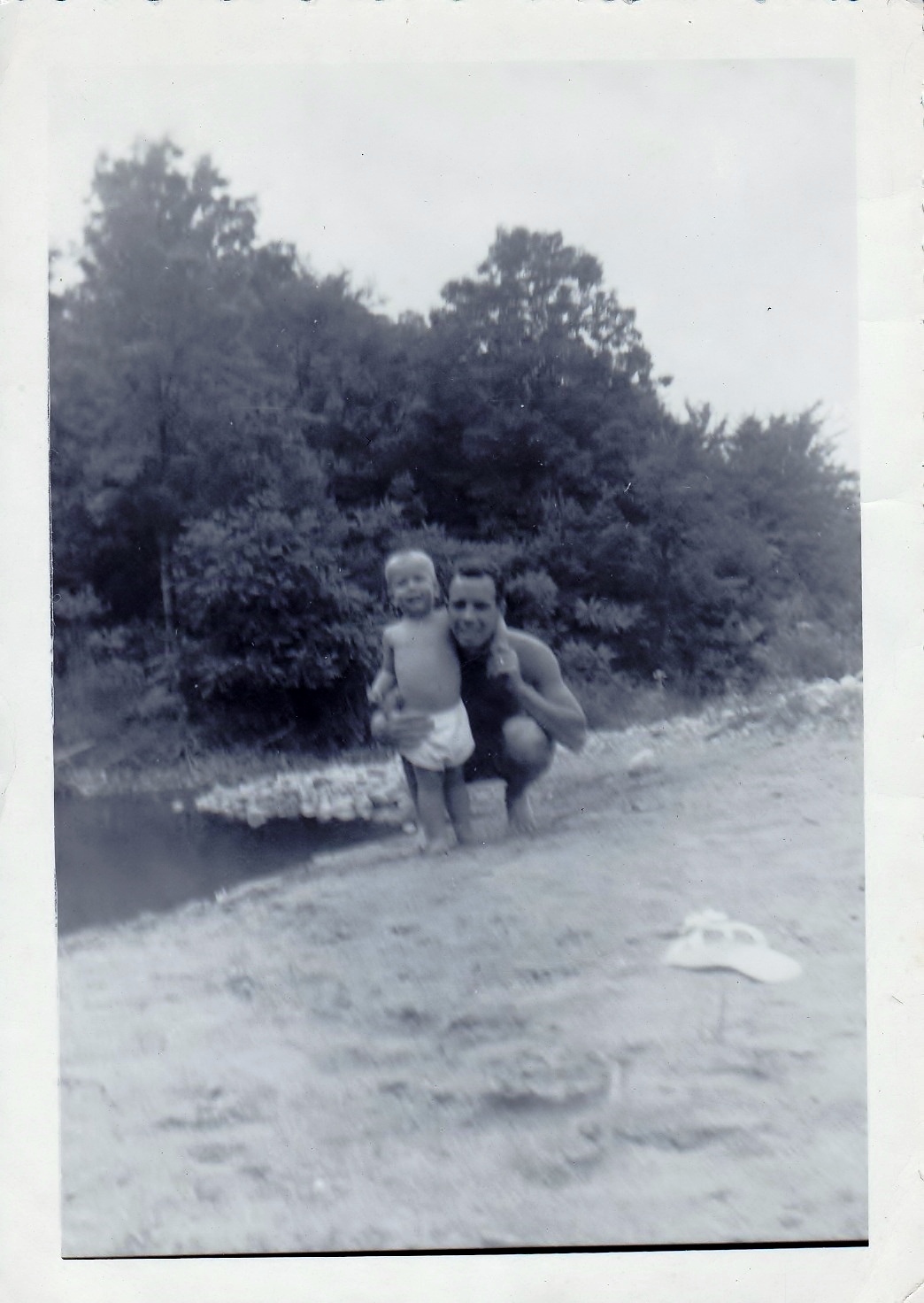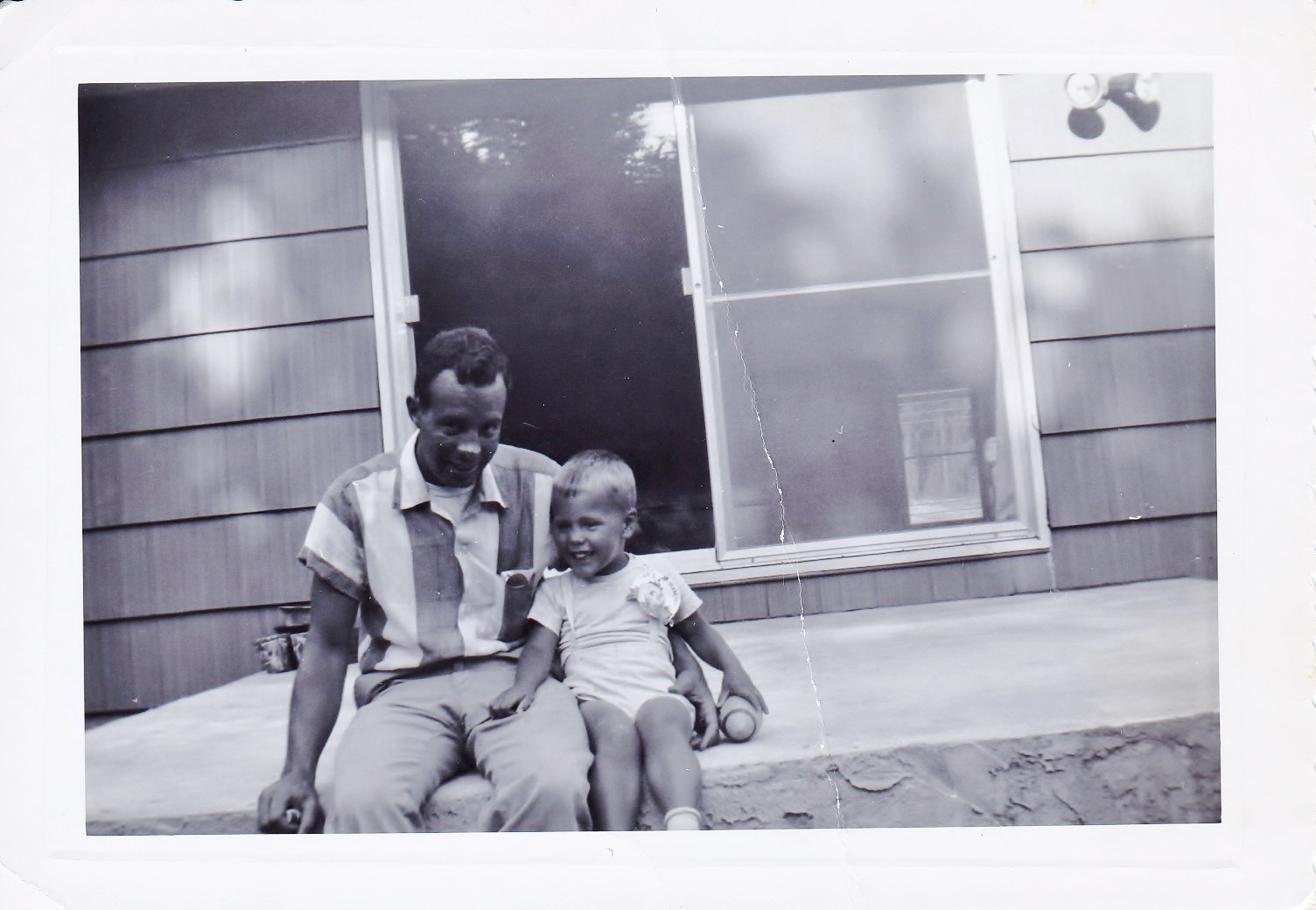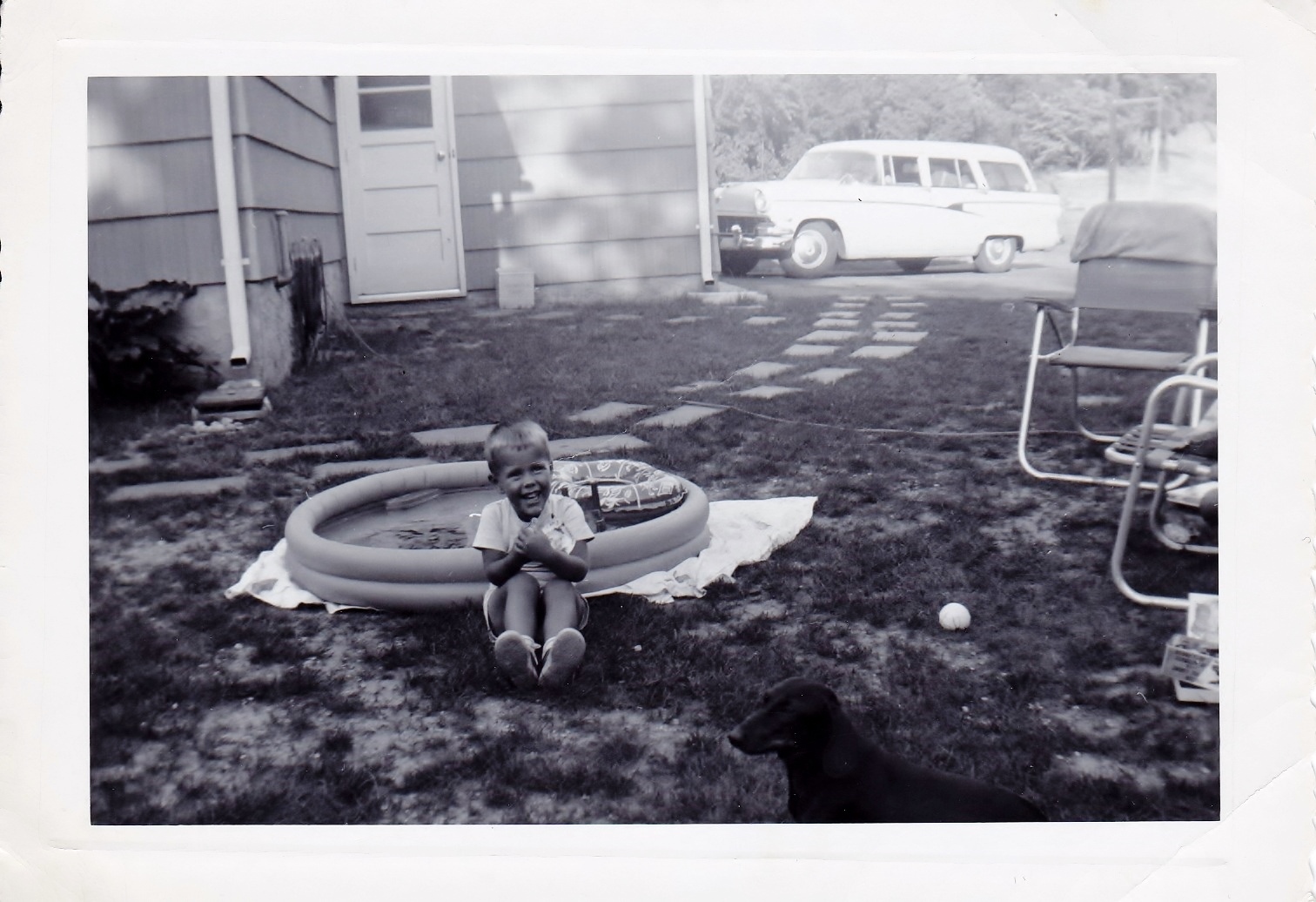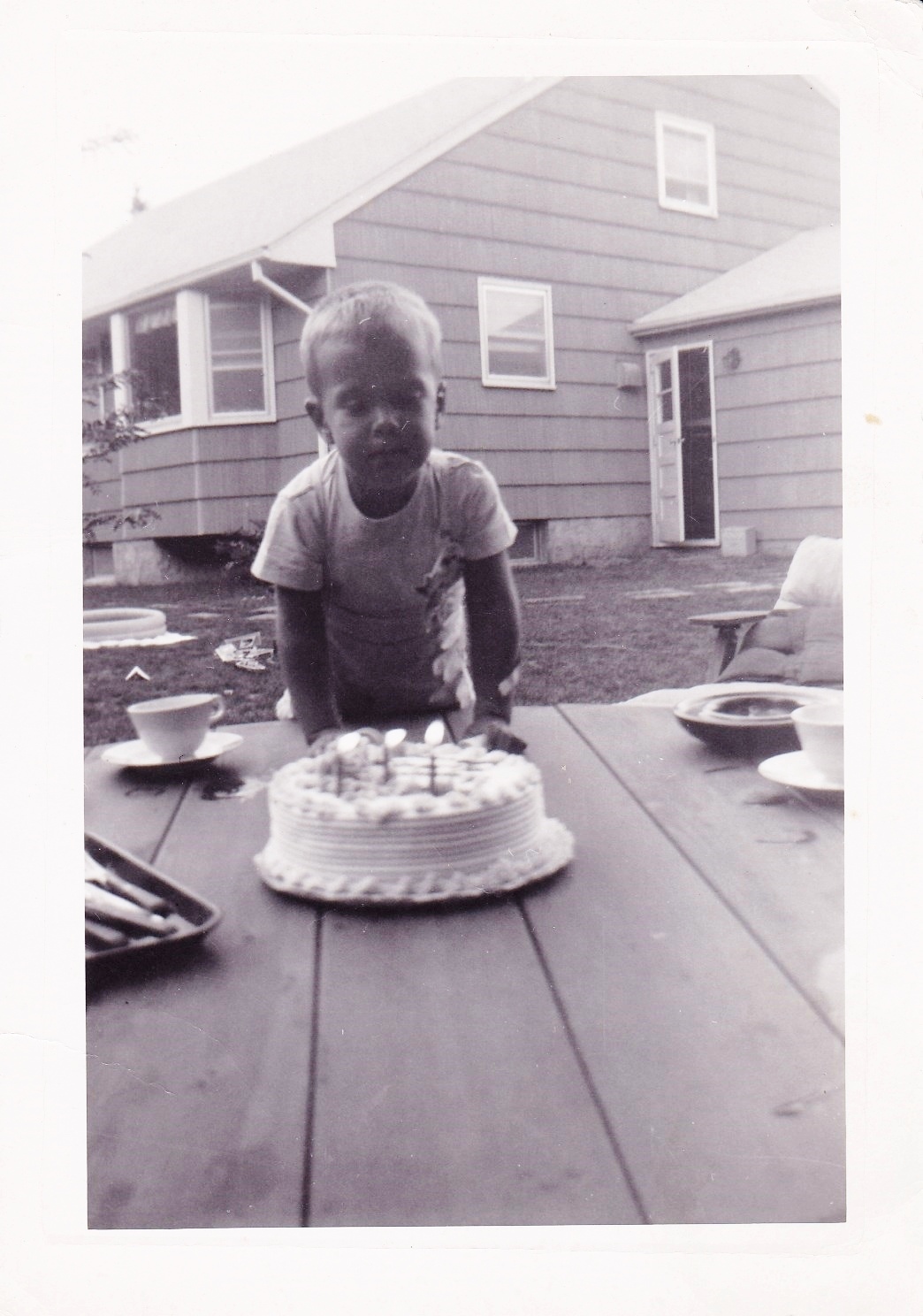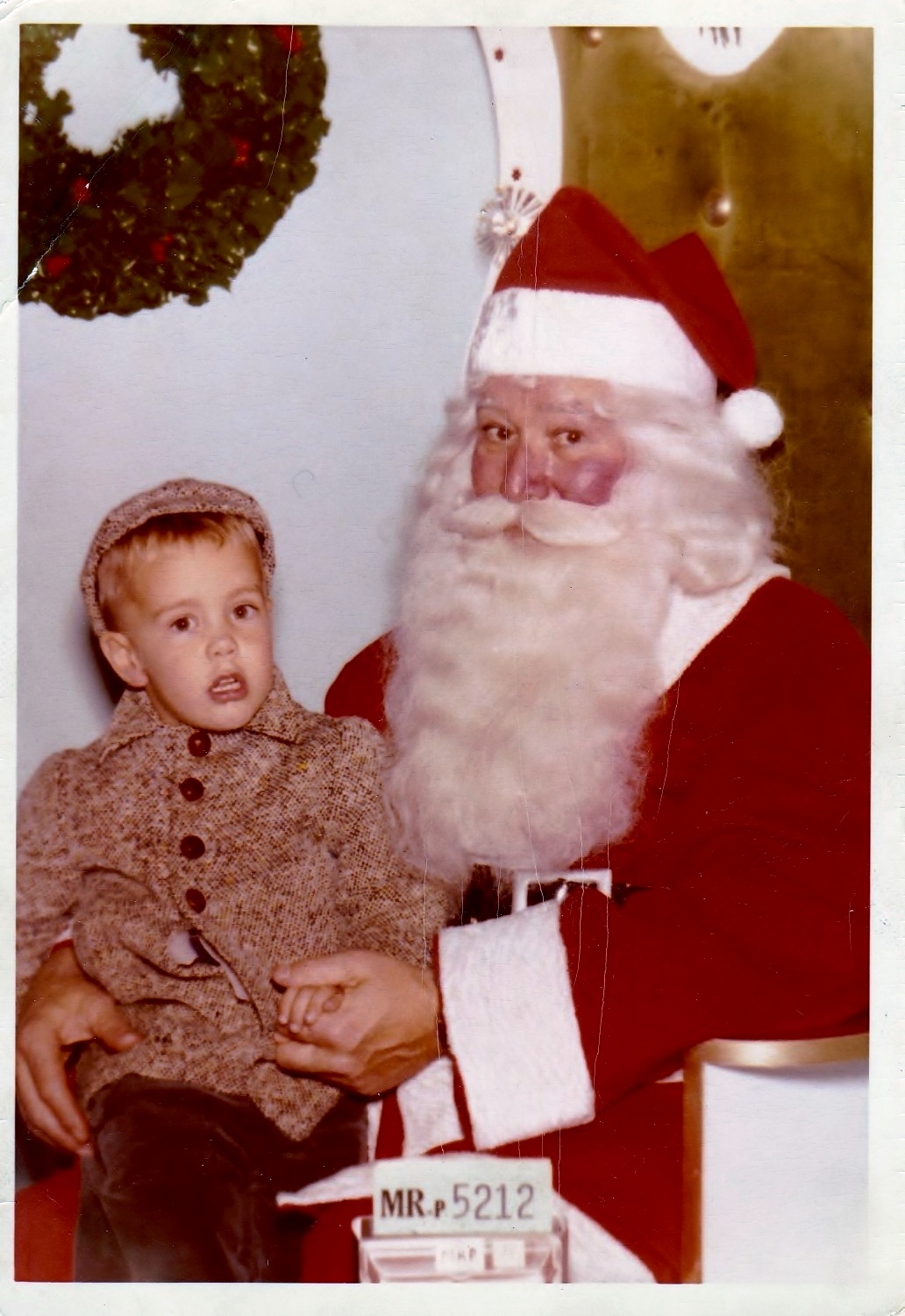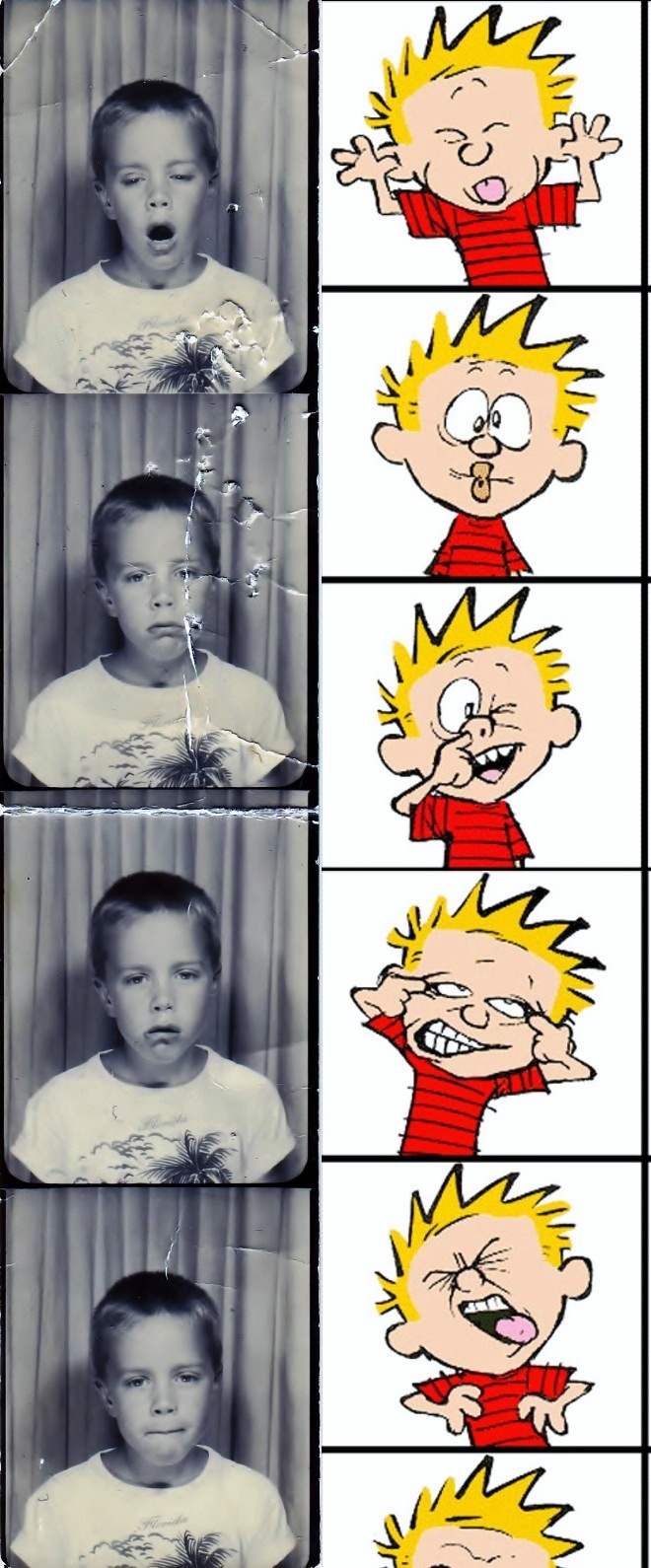
I left this autobiographical and probably self-indulgent contemplation of my previous incarnations sometime in the late 1950s, when I was noticeably still a toddler and prone to drawing things like this with my crayons:
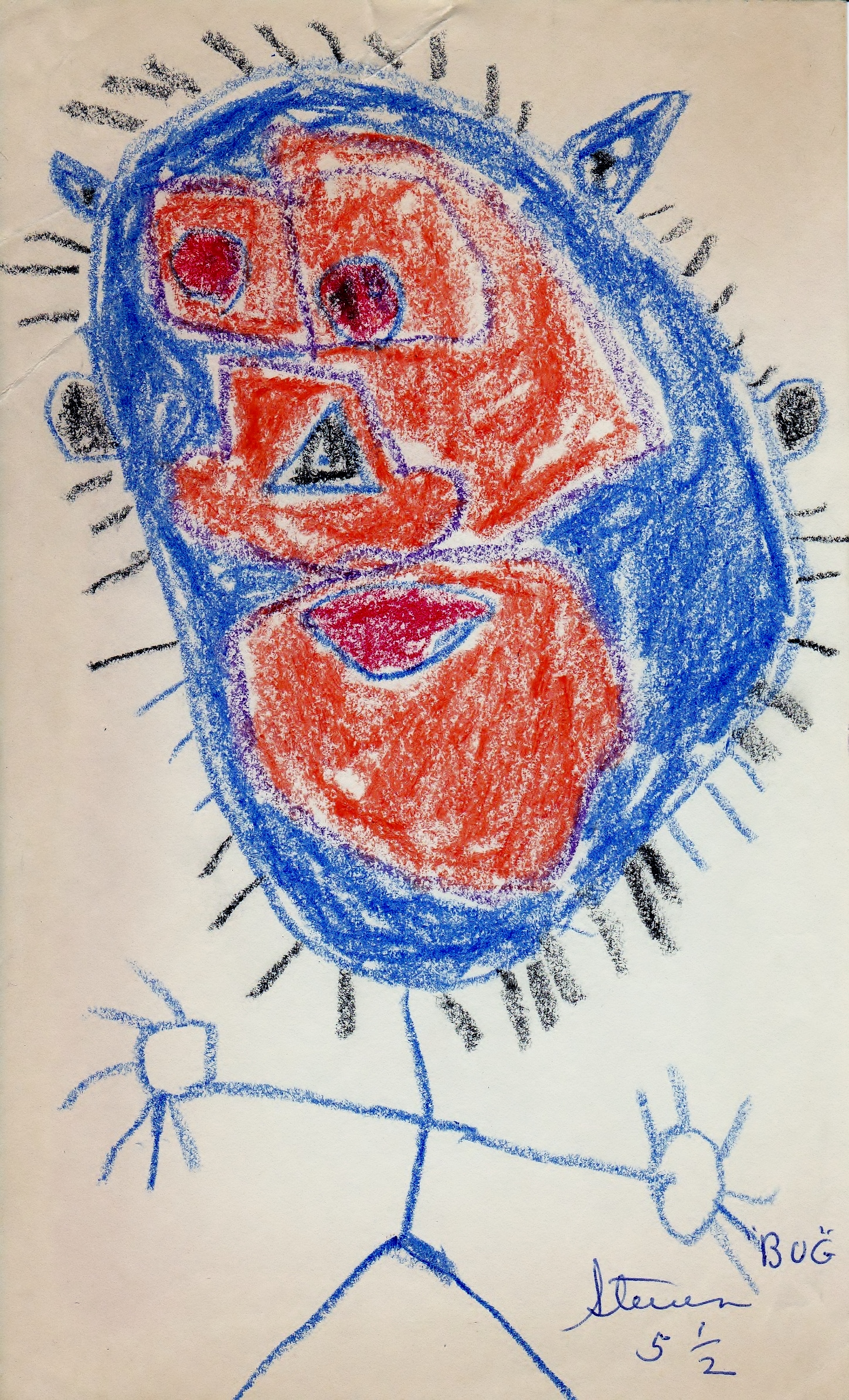
But all things, even the 1950s, the Eisenhower Administration, and my toddler years, had to eventually come to an end. Soon, John F. Kennedy was elected to be President of the United States of America, the world entered the 1960s, and I had to start kindergarten. Little did I know that I would be expected to attend school for the next 12 years of my life.
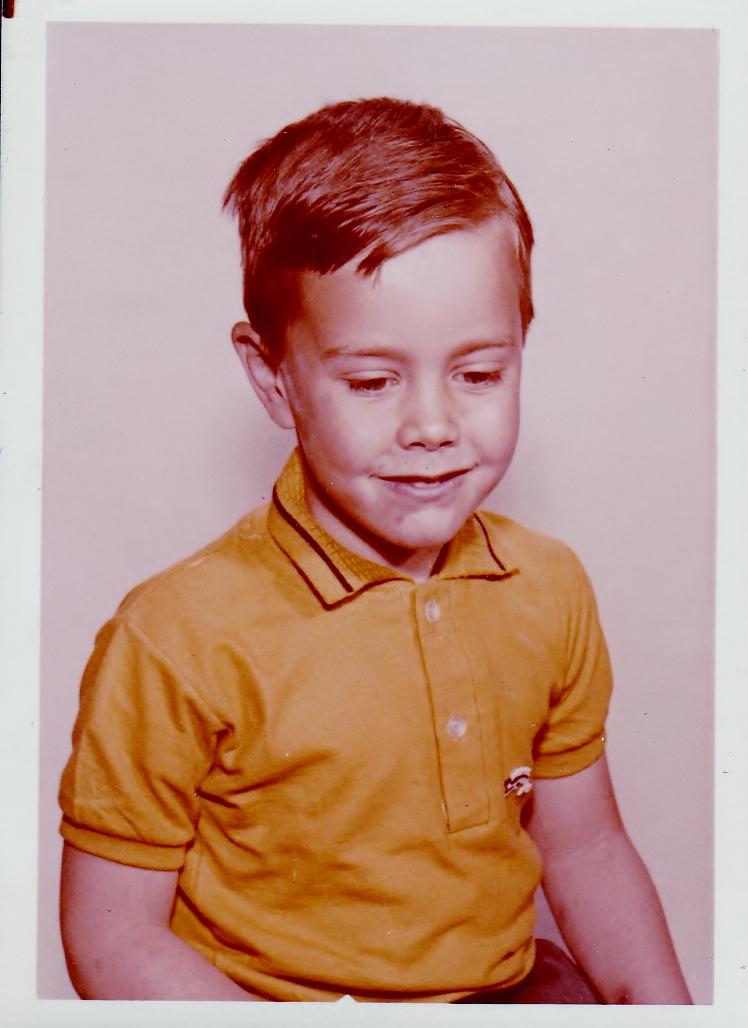
My parents enrolled their little boy in a private, parochial school (Epiphany Lutheran School in Hempstead, New York), which, other than having a nun (the difficult-to-pronounce Sister Esther) for a Kindergarten teacher, seemed otherwise normal. Hurricane Donna blew across Long Island in September 1960 while I was in the First Grade, and was far more interesting to me than schoolwork; I remember being outside with my father at the height of the hurricane to help secure a newly planted tree, and the eerie calm as the eye of the storm passed overhead.
After the novelty of the first year or so of school wore off, my interest in schoolwork abated. By the Third Grade, I was enrolled in public school. "He understands arithmetic, I'm sure," my Third Grade teacher offered optimistically in my report card, "He just doesn't seem as interested - he's much more interested in reading." To my right-brained intellect, mathematics seemed to just be all rote memorization and no fun at all, and no teacher or any amount of parental pressure was able to cajole me into feigning interest in what I found to be clearly dull. Reading my old report cards and my parents' responses to my teachers brings back painful memories of attempts to impose academic discipline, dreadful flash cards, home tutoring, and long harangues at the dinner table.
Let's move away from all that. Below, I'm far happier playing in my grandparents' garden. That speckled rock, I was told, was called "conglomerate," and it always intrigued me in ways that arithmetic never could.
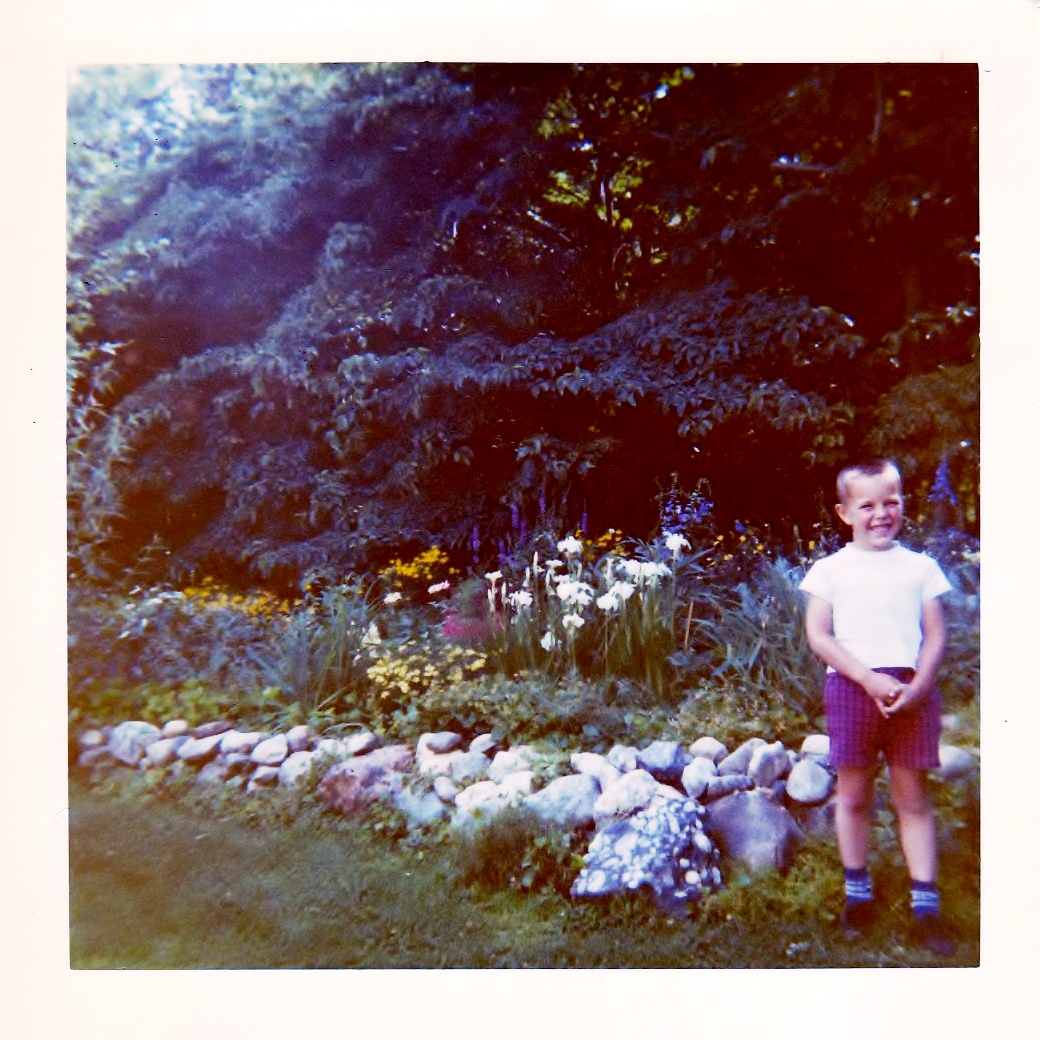
But the challenges of secondary education weren't all that was new. In 1960, a new baby sister had also entered the world and after a six-year run, my reign as an only child was over. As I recall, though, I was pretty much alright with the addition to our family - I was secure enough in my own sense of irreplaceability in my little cosmos that I even welcomed a sibling into our home, although I had no idea then that two more (another sister and a brother) would also be manifested over the next four years.
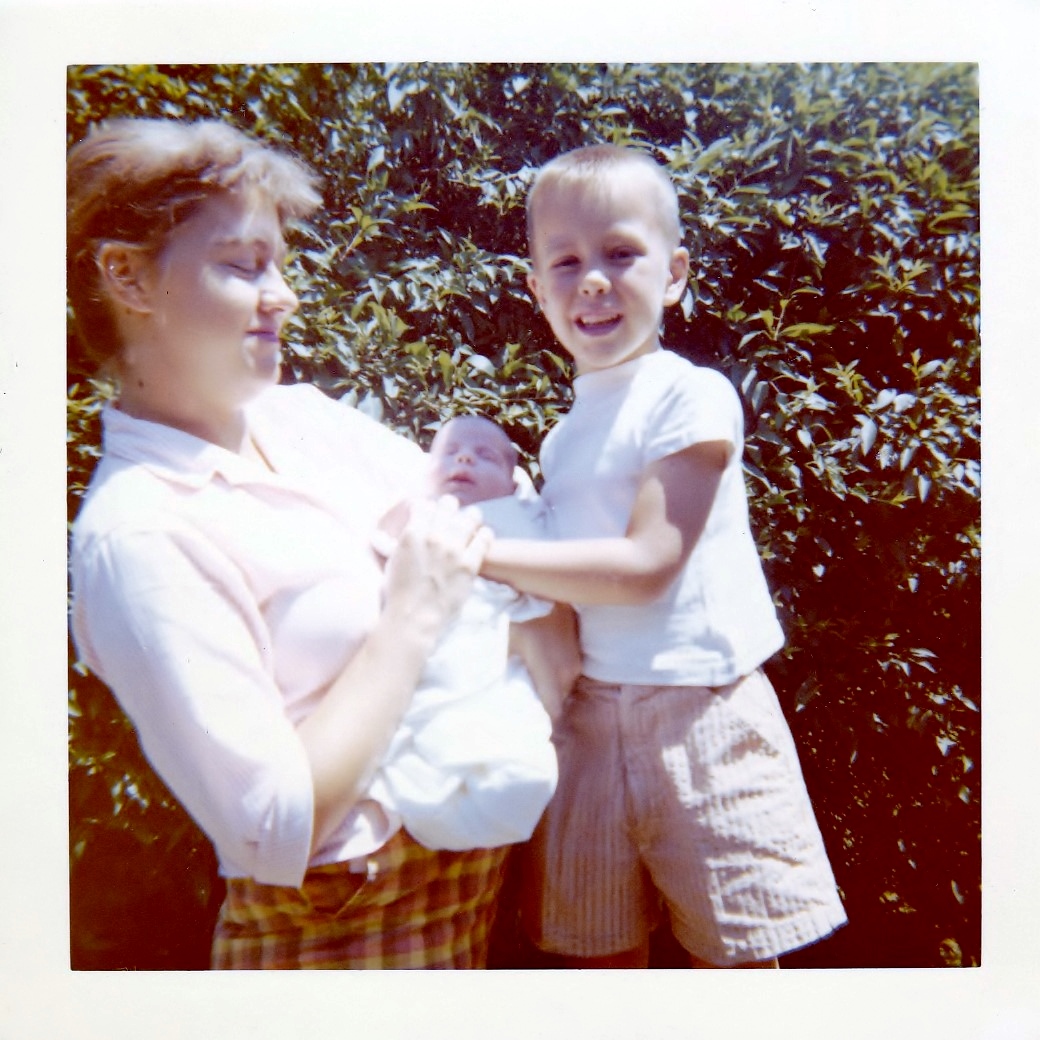
Here I am in 1961 apparently crossing some post-apocalyptic landscape with a gunny sack around my neck, because why not? The better, I suppose, to prepare for the aftermath of what seemed then like the inevitable thermo-nuclear war - this picture was taken about a month before the ill-fated Bay of Pigs invasion of Cuba.
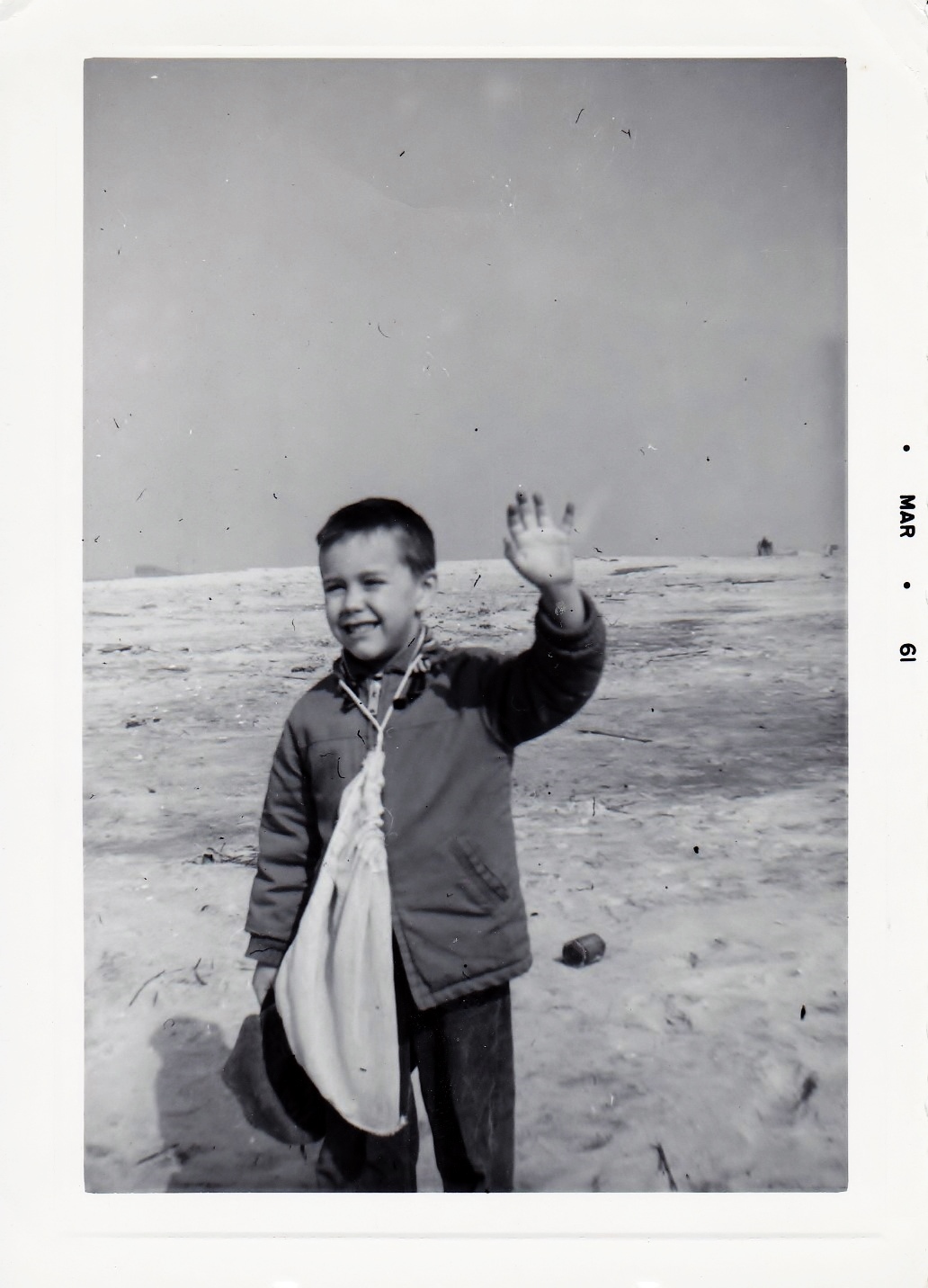
There was plenty of things to be frightened of back then, what with the "Soviet menace," the "Cuban menace," reds in the State Department, Sputnik, and nuclear proliferation, but personally I was obsessed with dinosaurs and monster movies, especially monster movies about dinosaurs. I couldn't get enough of them. Dinosaurs, I think we can all agree, were the best.

Every weekend, I would watch monster movies on television - Frankenstein, Dracula, The Wolfman, Godzilla, King Kong, anything really, I wasn't very discriminating - they all terrified and fascinated me in equal measure. I would watch each and every space opera that WPIX, New York's Channel 11, aired on its Saturday night Chiller Theater, and would get myself so frightened that I wouldn't want to go to bed at night, but would still watch the next monster movie that would air the following week.
My favorite magazine back then, of course, was Famous Monsters of Filmland, which also scared me silly. Some issues were so scary I didn't even want to turn the pages for fear of what I might find next.
My favorite magazine back then, of course, was Famous Monsters of Filmland, which also scared me silly. Some issues were so scary I didn't even want to turn the pages for fear of what I might find next.

But dinosaurs were the best of all. My obliging parents would read to me every book on dinosaurs they could find, and after they had exhausted everything in the Levittown Public Library, my poor mother had to write her own dinosaur book just to satisfy my craving.
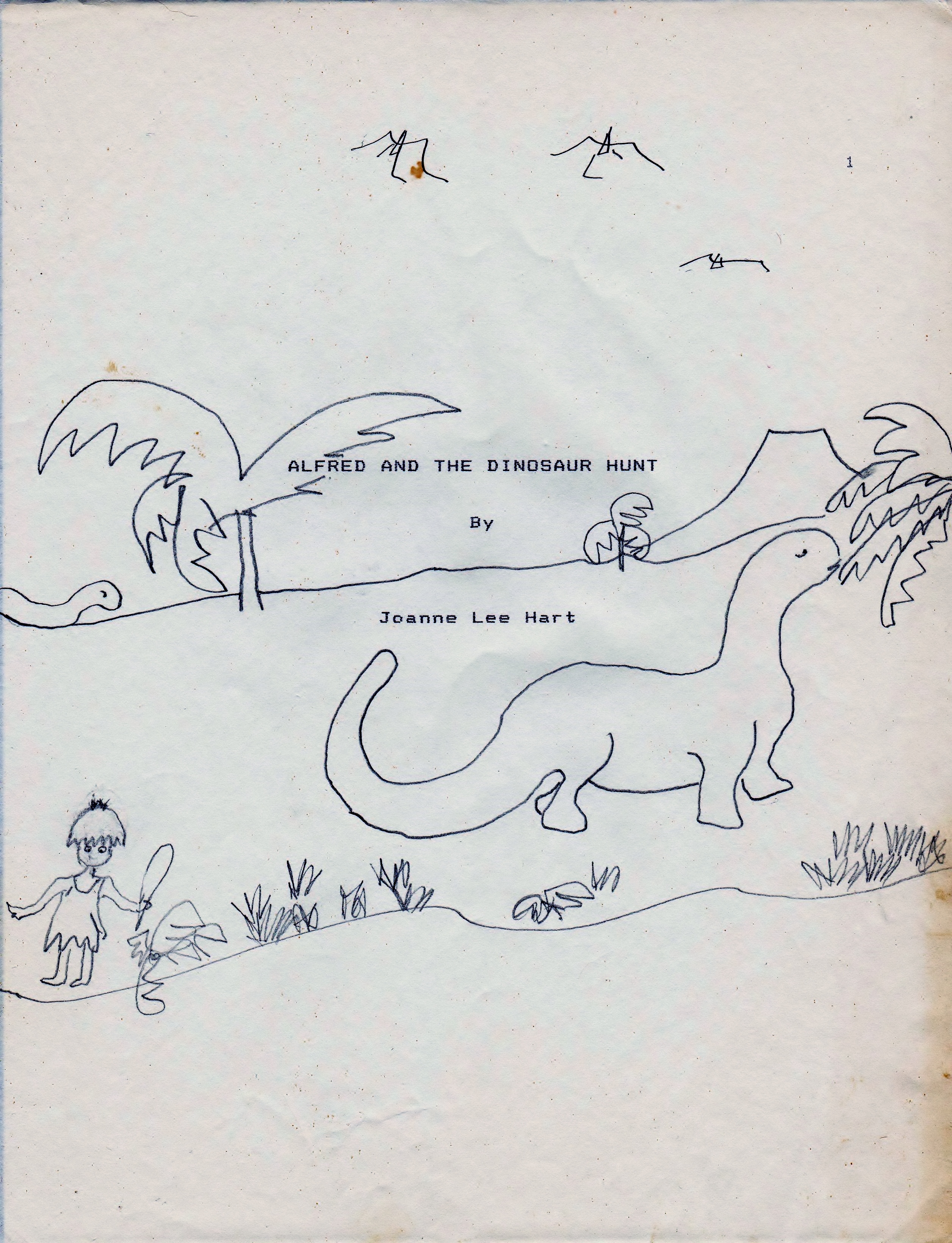
So as you could imagine, about the most exciting thing to my eight-year-old self was when I saw in the newspaper that there were going to be life-sized model dinosaurs at the 1964 New York World's Fair.
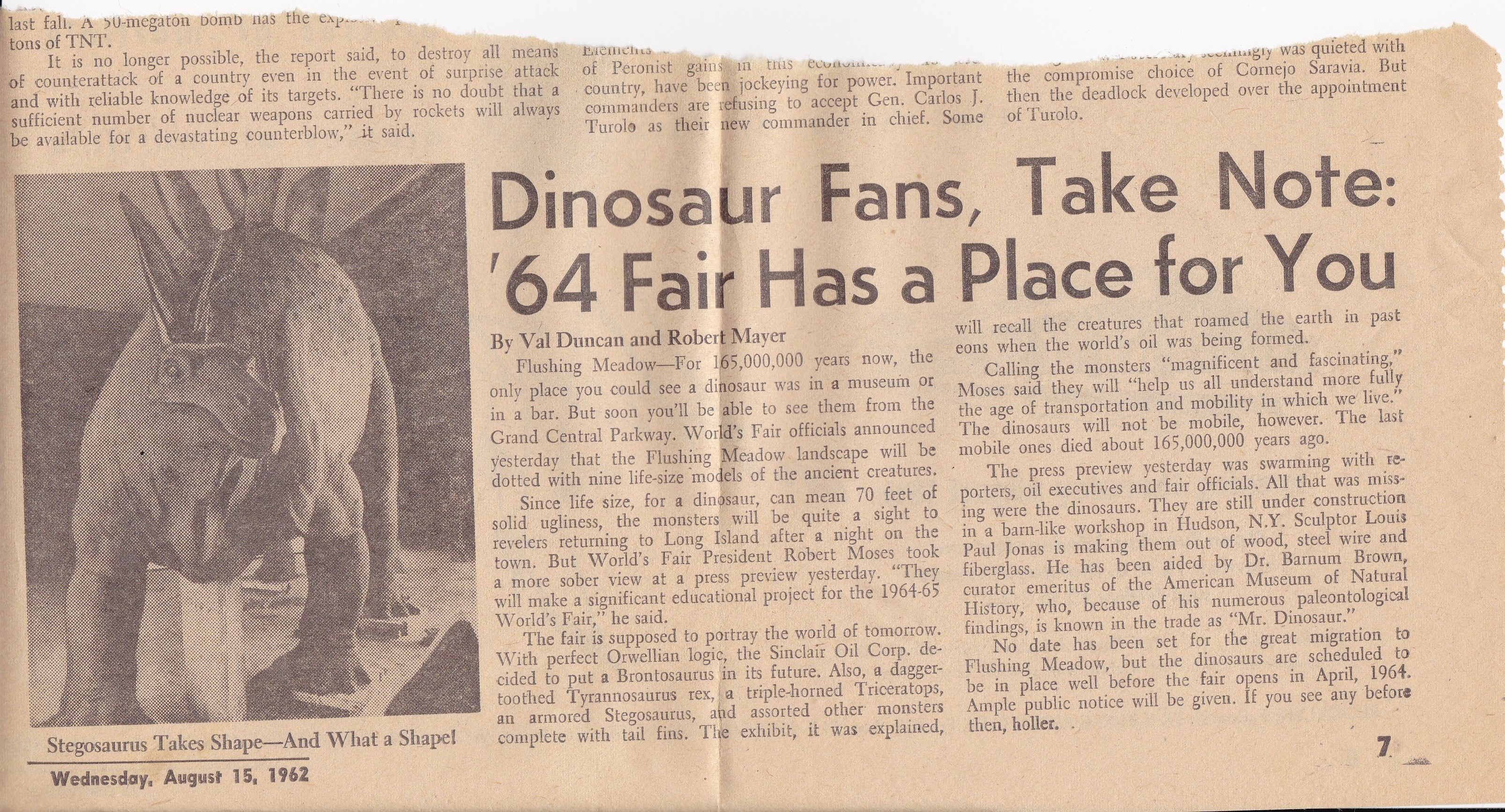
(What's really interesting to me now, though, is that truncated verbiage at the top of the page. After "A 50-megaton bomb has the explosive . . . tons of TNT," the Strangelove-ian, Cold War-era story continues, "It is no longer possible, the report said, to destroy all means of counterattack of a country even in the event of surprise attack and with reliable knowledge of its targets. 'There is no doubt that a sufficient number of nuclear warheads carried by rockets will always be available for a devastating counterblow,' it said." That's the kind of reporting that got carried on Page 7 of the daily newspaper in 1962, and news like that should have terrified me far more than Beast From 20,000 Fathoms.)
An 8-year-old is not psychologically equipped to wait the two years from the 1962 announcement that there's going to be dinosaurs until the opening of the '64 World's Fair, so my parents had to drive me upstate to the town of Hudson, New York, just to see the dinosaur even while they were still under construction. The head modeler, Louis Paul Jonas, was so taken by my enthusiasm that he autographed an educational brochure for me.
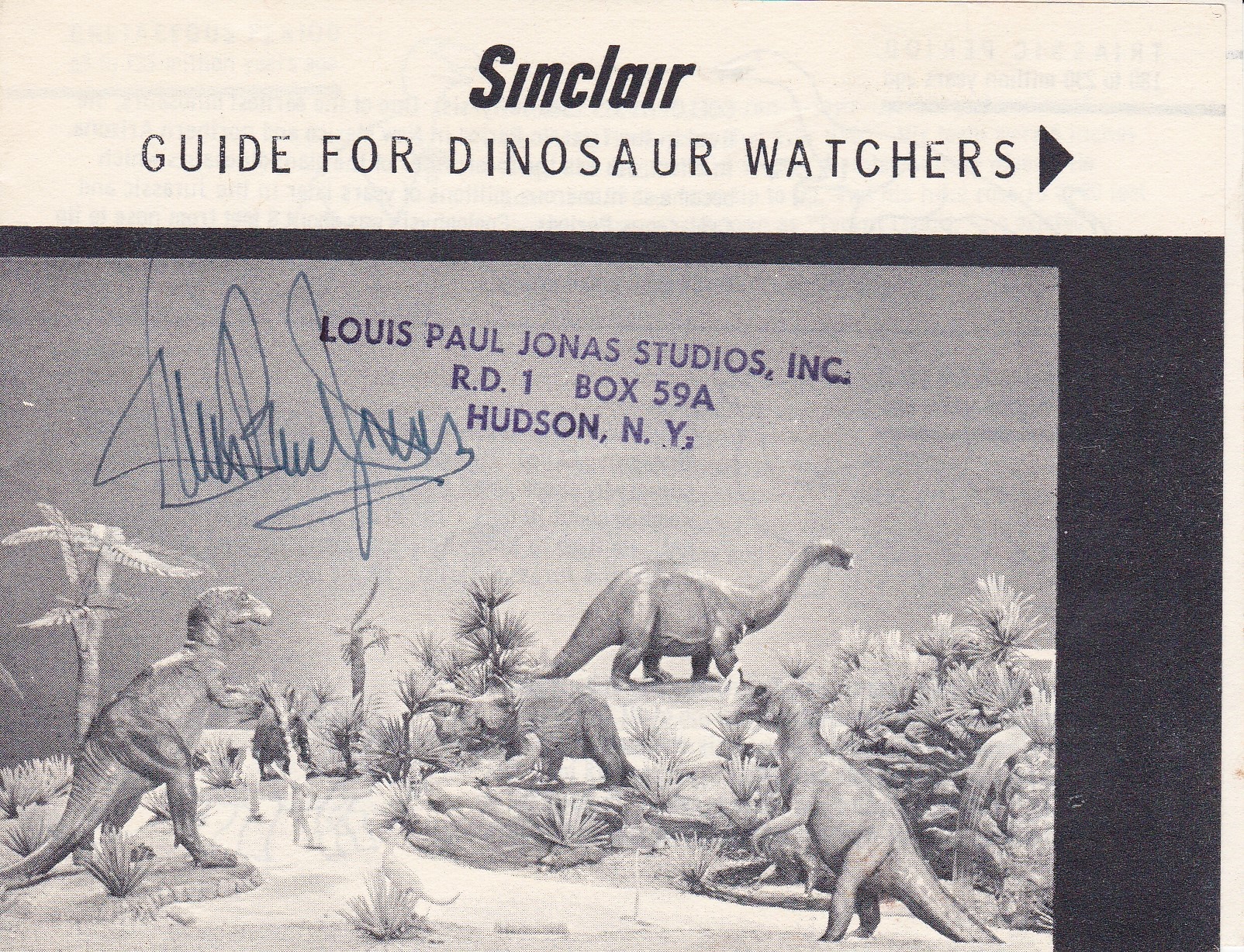
By July 1963, I still had another year to wait, but soon after this picture was taken, possibly on my birthday, we moved from the house in Levittown pictured below out to still-suburban but somewhat-more-rural St James, on the North Shore of Long Island's Suffolk County.
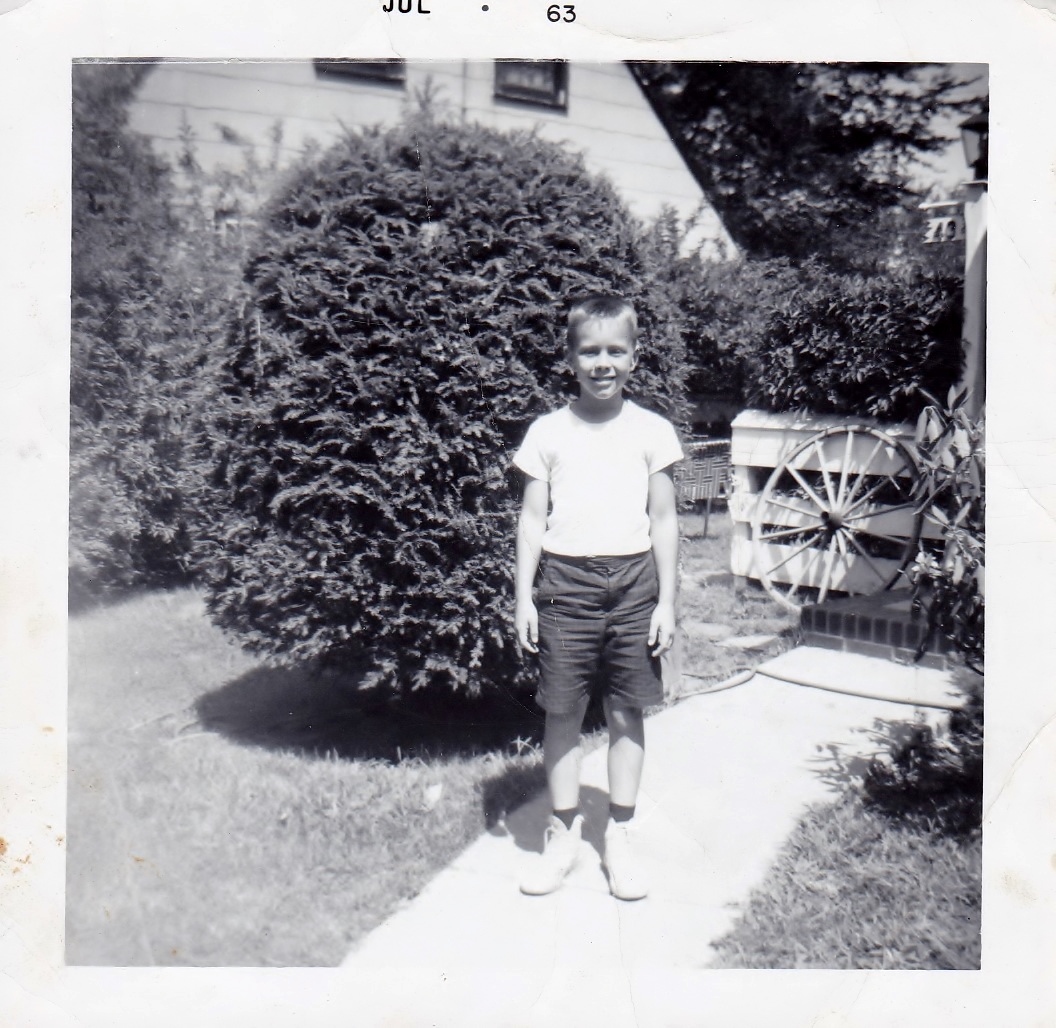
The 1963-4 school year had barely begun, of course, when we learned of the assassination of President Kennedy. I was nine years old at the time and in the Fourth Grade.
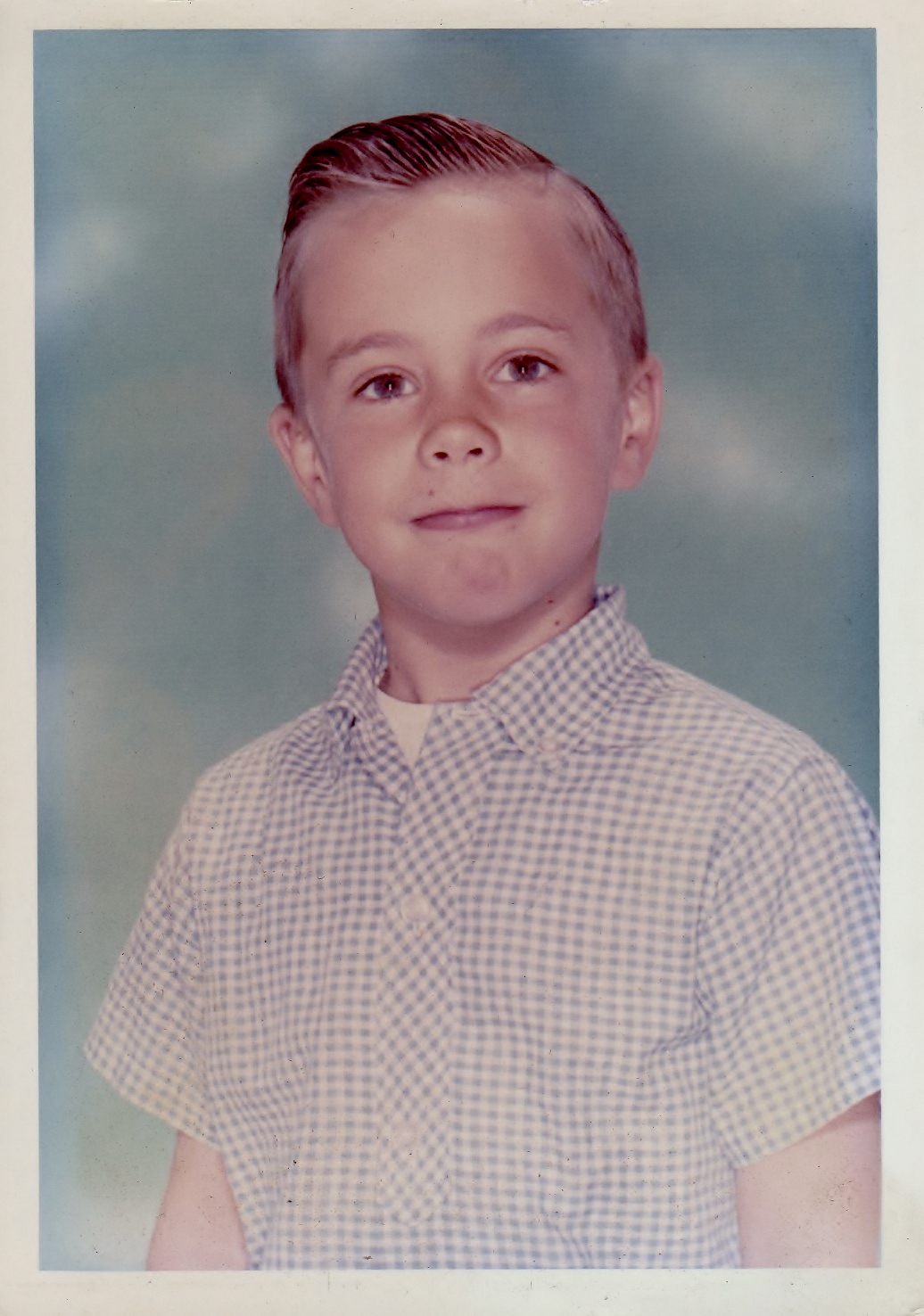
Barely three months after the Kennedy assassination, The Beatles appeared on The Ed Sullivan Show for the first time, a broadcast reportedly watched by 73 million viewers, or some 34 percent of the American population. It was all any of the kids could talk about the next day at school ("Did you see that?" "Their hair was so long, they looked like girls!" "All they did was scream!" "That was so cool!"). It was everything the teachers could do to keep us in our seats, much less not blabbering on about the show, and lessons were clearly out of the question for the day. I wasn't sure what to make of it all at the time, but in retrospect it changed everything.
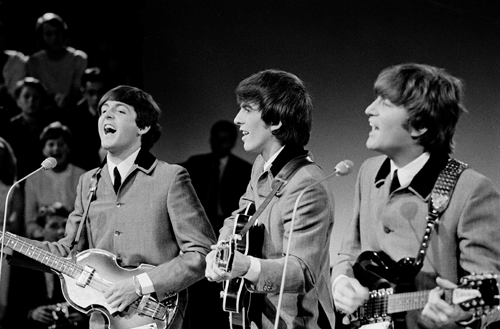
Things indeed did start to change pretty fast after that. I finally got the chance to go to the World's Fair and see the dinosaurs and all of the Disney-inspired, Future-World pavilions. My interest in dinosaurs led to an enthusiasm for aquariums and terrariums, and the keeping of small animals of any kind. We had cats and dogs and raised our own chickens, and there were raccoons and opossums and fireflies, and still, every weekend, we headed for the beach. There was a nearby beach on a small harbor within walking distance which was a delight to swim in at high tide and an absolute hell-hole of mud and snails and razor- and horseshoe-crabs at low tide, forcing me to learn to read tide tables and Farmers' Almanacs at an early age. But I'm pretty sure that my parents and most of my siblings would agree that these were the best years for our growing family, the time of our happiest childhood memories.
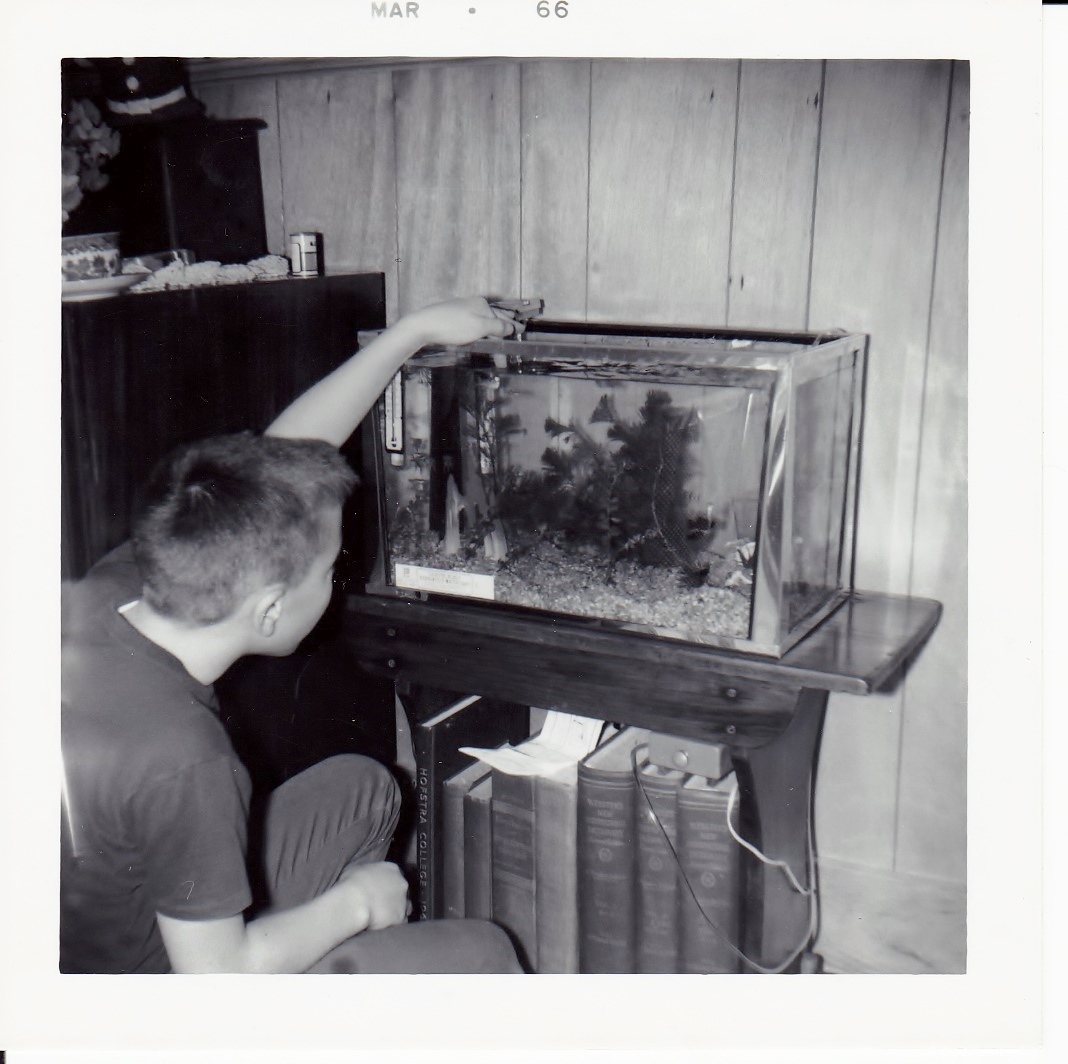
As an aside, I still have that three-volume dictionary (Webster's New International, Second Edition) on the right-hand side of the book shelf.
But most of all, I was changing, transmorgifying into my next incarnation, the pre-adolescent. By 1965, I was in the senior-most class of my K-through-6 school and pretty much knew my way around the system there. By this time, I had figured out how to get free bottles of Coca-Cola out of the "honor system" cooler in the Teacher's Lounge and get away with it, I was a regular custodian of the "Science Museum" in the basement, and I would forsake the school bus and walk home every day, stopping by the music store in town to buy my weekly Top-40 single for 50 cents each.
In many ways, I was at the top of my game. Here's my Sixth Grade class photo; that's me on the far right in the middle row, physically small for my age, but big in confidence. We're now in the period where I have actual memories of these photos, and can still recognize at least half of the faces in the photograph.
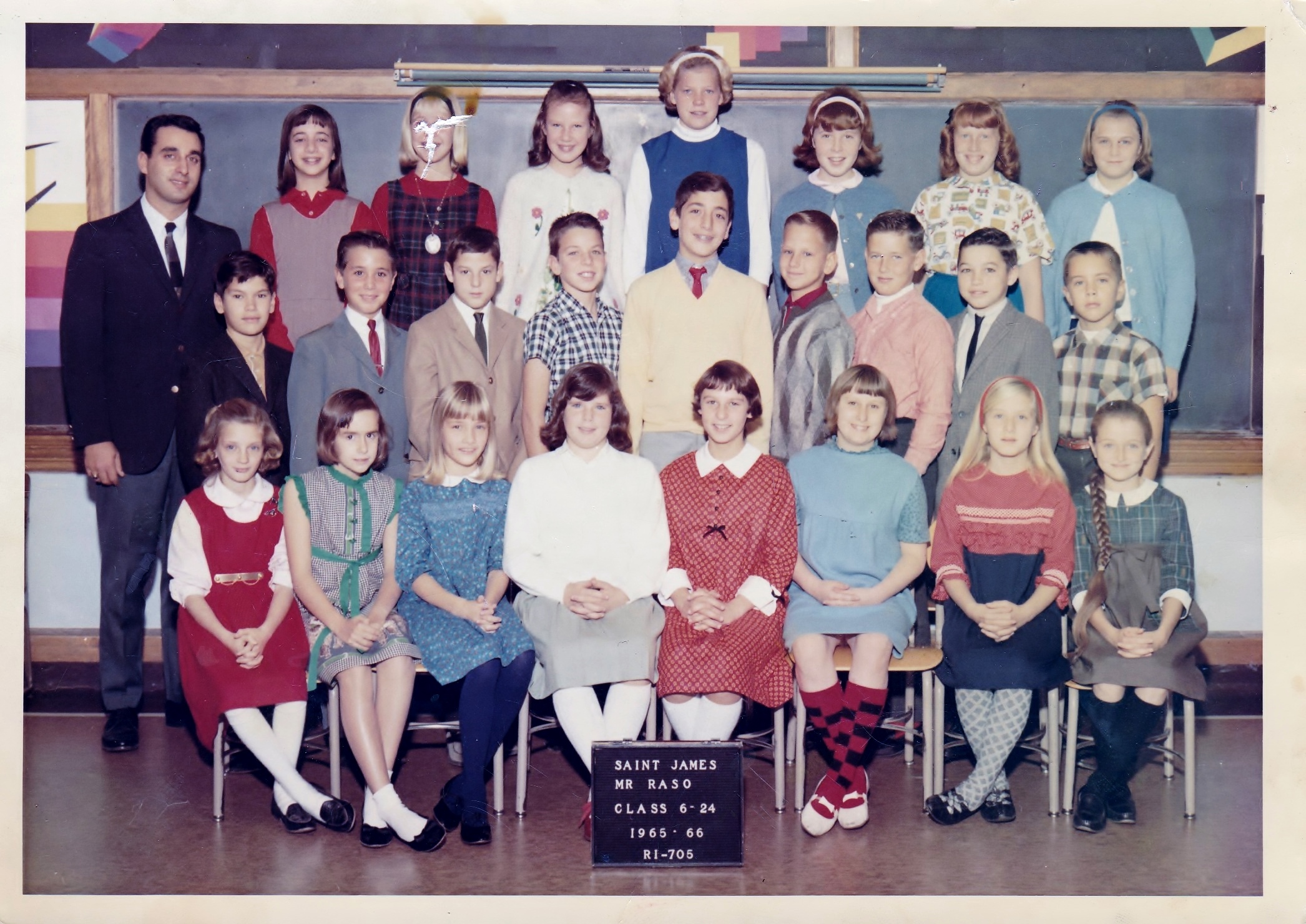
By the time we got into Junior High School the next school year, her Scandinavian good looks and developing figure were immediately noticed by a lot of older boys who did know what to do, or at least knew more than I, and she broke my heart when I learned that she was going steady with another, an upper class man. It was around that time that I scratched her face out of the picture, and almost instantly regretted doing so in my first, but by no means last, instance of romantic regret.
So I think we've covered a lot of ground here, from a barely toilet-trained toddler who drew pictures of bugs to a heart-sore pre-teen with an enthusiasm for Beatles' records. I barely touched on rock 'n' roll, and I didn't even get around to talking about race and the first time I met a black kid, Jolly Roger's amusement park, the 1964 Johnson vs. Goldwater presidential campaign, Playboy Magazine, I Spy and The Man From UNCLE, Star Trek and Lost In Space, my lack of recognition of the income disparity between my home and that of some of my classmates, or the myriad other adolescent interests and aspects of growing up as a white, suburban, middle-class male in the 1960s.
I might have to fill in some of those gaps, but if not, I'll pick this story up again in 1967, the Summer of Love, sometime soon.






